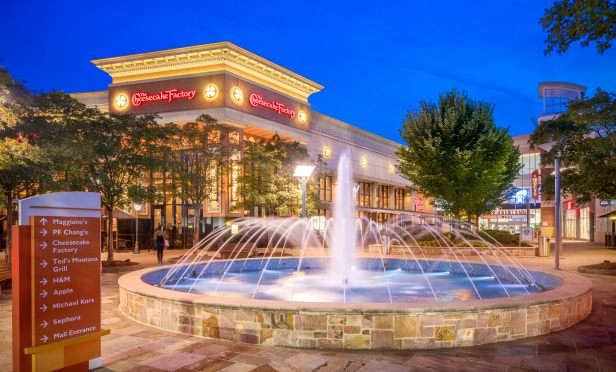 Investors may be missing a big opportunity in class-A malls. Top quality malls are outperforming other retail assets and are seeing strong rent growth. CBRE Global Investors sees strong potential in these assets, and recently struck on the opportunity with the acquisition of three-property portfolio totaling 3.7 million square feet located in Atlanta, Dallas/Fort Worth and Minneapolis. CBRE purchased the portfolio in a joint venture with Brookfield Property Partners from General Growth Properties.
Investors may be missing a big opportunity in class-A malls. Top quality malls are outperforming other retail assets and are seeing strong rent growth. CBRE Global Investors sees strong potential in these assets, and recently struck on the opportunity with the acquisition of three-property portfolio totaling 3.7 million square feet located in Atlanta, Dallas/Fort Worth and Minneapolis. CBRE purchased the portfolio in a joint venture with Brookfield Property Partners from General Growth Properties.
“In contrast to lower-quality properties which are experiencing major headwinds, class-A malls continue to outpace other retail formats and are experiencing rising sales and rents,” David Morrison, the CIO of the Americas at CBRE Global Investors, tells GlobeSt.com. “We expect to see a widening gap in performance in malls and incremental shopping demand from the consumer to be driven into class-A malls to accelerate as the shopper experience in lower-quality assets is increasingly challenged.”
CBRE Global Investors purchased Cumberland Mall, a 1 million-square-foot super-regional mall in northwest Atlanta; Ridgedale Center, a 1.2 million-square-foot super-regional mall in western Minneapolis; The Parks Mall at Arlington, a 1.5 million-square-foot super-regional mall between Dallas and Fort Worth. The assets are 98% leased and all fit CBRE's profile for future growth. “These assets and locations ranked very highly in that process based on the strong local economies and real estate fundamentals,” says Morrison. “Additionally, we felt that these assets had a strong balance of attractive and stable tenant profile while still providing upside opportunities to enhance the assets and increase rents and value overtime.”
Retail has gained a bad reputation in the last couple of years as competition from ecommerce has forced major changes in the brick-and-mortar space. As a result, many investors have reduced exposure to retail assets. With fewer players—and therefore limited competition—has made the class-A mall niche all the more attractive to CBRE. “The fact that there was limited competition is something we found attractive. Based on the size of these investments many investors do not have the scale to compete for super regional malls,” explains Morrison. “Additionally, because public markets for retail companies are currently pricing at well below their private market values it is difficult for public companies to be active for new acquisitions. I do believe there will be continued interest in class-A malls from large domestic fund managers who are investing through private equity vehicles.”
CBRE certainly sees strong opportunity in this retail niche for the right assets; however, it isn't going all in. With the evolving retail market, they remain cautious. “We think there are selective opportunities in retail investments, and we are still interested in pursuing additional investments across the retail spectrum,” Morrison says. “We are cautious about some of the headwinds related to traditional retailers and the impact of the changes related to e-commerce; however, that fear can lead to the mispricing of high-quality assets that are more defensively positioned against those changes.”
While the investment platform is cautious, it has a glowing outlook for class-A malls specifically. “Fundamentals are very positive as retail sales continue to outpace consensus forecasts, and there is evidence that this incremental sales growth is disproportionately focused on class-A malls,” Morrison adds. “Further we believe capital markets for these rare assets will remain strong. Because the vast majority of these malls are owned by public companies, the opportunity for private equity owners to purchase them keeps pricing very competitive.”
© Touchpoint Markets, All Rights Reserved. Request academic re-use from www.copyright.com. All other uses, submit a request to [email protected]. For more inforrmation visit Asset & Logo Licensing.






